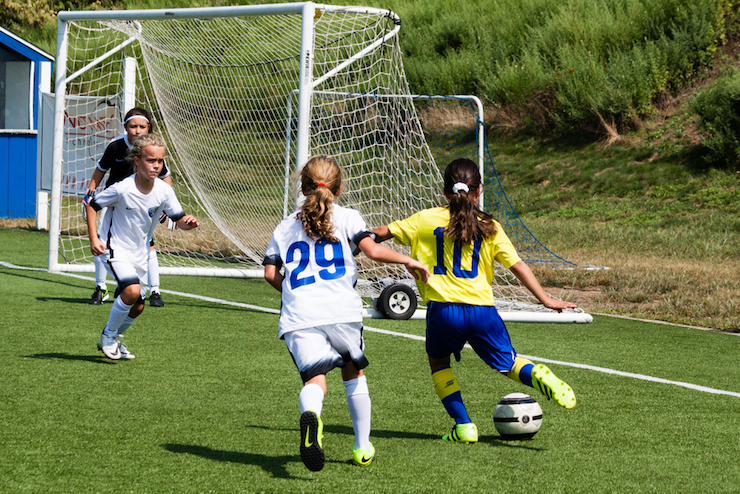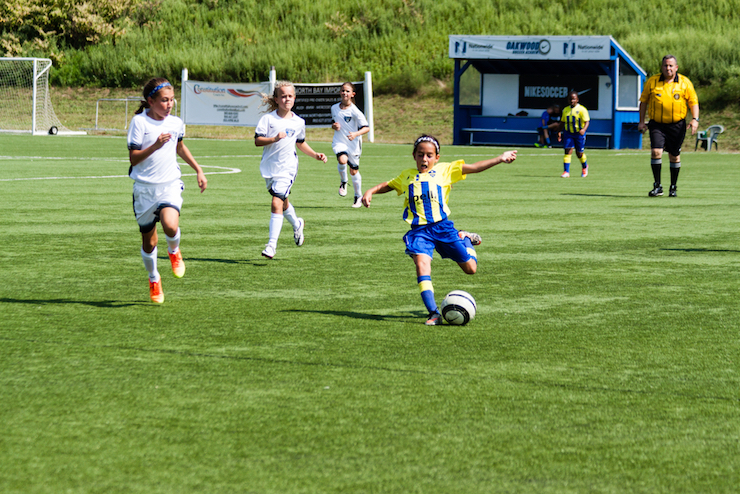Youth Soccer Clubs: Best Practices For Team Meetings
The success of a youth soccer club should depend upon great coaching and creating a positive player-centric environment but often simple mistakes in governance can plague an organization.
It is surprising, according to expert Ruth Nicholson, how often the issues that hold us back in the youth soccer club world can be solved with clear paths to proper governance. PART I of the new three-part series from Ruth Nicholson.
Related Soccer News: RUTH NICHOLSON – THE TOP 5 MISTAKES YOUTH SOCCER CLUBS MAKE
Parents can be your strongest allies or your most significant obstacles.
Why not let parents be your allies? That is what Ruth Nicholson, an advocate for the game of soccer, wonders often. Why do some youth soccer clubs make things more difficult?
Nicholson’s area of specialization, after working with youth soccer organizations for over 25 years, is operations, administration, funding support, and governance. A clinician who has presented at more than 11 sessions at NSCAA Conventions/US Youth Soccer Workshops, Nicholson founded GO – Governance & Operations, a go-to expert resource for youth sports governance and operations. She is who gets the call when an organization or club is at an impasse with their board.
As a follow up to RUTH NICHOLSON ON AMERICAN YOUTH SOCCER – WHAT’S RIGHT AND WHAT’S WRONG, here is information on how to hold youth soccer team meetings that really work and solve problems – not create them.

Youth Soccer Team Meetings – Expectations and Engagement
A well-designed meeting at the beginning of the playing season can clarify expectations, establish realistic goals, and set a positive tone for a team, its players, and its parents.
How can you set your team up for success at this important first team meeting?
The team formation meeting, also known as the organizational meeting or the first team meeting of the playing season, occurs shortly after players have been assigned to teams. For those clubs who hold tryouts, the meeting is held after tryouts have concluded. The purposes of the
Youth Soccer Team Meeting Are To:
- Introduce coaches, players, parents, and families to each other,
- Outline the coaching approach and team calendar of activities for the season or for the year,
- Collect initial team and club fees (if not done online), and
- Recruit and identify key volunteers to support the team.
One of the keys to smooth team operations off the field is setting clear expectations for players and parents, as well as engaging parents in constructive ways of supporting the team.
Youth Soccer Team Meeting – Planning and Setting Expectations:
The coach sets the tone for the team and is responsible for the team meeting. Key volunteers, such as the team manager and team treasurer, can provide valuable help in planning the meeting.
The typical topics covered in a youth soccer team formation meeting are:
- Introductions of the coaching staff, players, and key team and club volunteers
- Coaching and training approach and major goals for the year that are appropriate for the team, age group, and competitive level.
- Clarification of expectations for players, parents, volunteers, and coaches
- Team calendar for training, league and tournament competitions, special events, and breaks and rest periods from formal training
- How to register players and pay team, uniform, and club fees, including an explanation of policies regarding payments, financial aid, and refunds.
- Team communications, including the use of team and club websites, and how to constructively resolve concerns and problems should they arise
- Team and club volunteer needs and how to sign up
Youth Soccer Team Meeting – Tips for Success:
When planning the details of the youth soccer team meeting, consider these questions for each item on the agenda:
- INFORMATION: What information needs to be shared for each agenda item? How is the best way to communicate that information? Who is the best person to present that information?
- OUTCOMES: What is the outcome needed for each agenda item? Is it simply sharing information? Do people need to take a specific action, like pay a team fee, volunteer, or order a uniform?
- TIME: How much time is needed to address each topic on the agenda?
When deciding how much time is needed for each agenda item, include time for both presentations and questions.
Do not assume that everyone knows the details that have become second-nature knowledge to returning players and families and club “insiders”.
The risk of building in too much question time is that you will end your meeting early, and most people will not object to that!
Youth Soccer Team Meeting – Communicate. Communicate. Communicate.
Parents can be your strongest allies or your most significant obstacles.
Use your first team meeting to create allies through setting clear expectations and inviting constructive engagement.
The Team USA Coaching Newsletter asked if coaches were prepared to answer the following parent questions:
- What is your player development approach this year?
- What are your expectations for your players?
- What are your expectations for your parents?
- How do your players earn playing time?
The newsletter asserted that having a coaching philosophy and goals for the year sets teams up to start the season off on the right path.
It also challenged coaches to take a pro-active approach in communicating the answers to these types of questions to parents and players before being asked.

Part of engaging parents and players is providing them information.
For team meetings, send your players and families the date, time, location, meeting agenda, and directions to the meeting location at least a week prior to the meeting.
Specifically identify what you want people to bring to the meeting, such as credit/debit cards to pay fees, medical release and concussion forms, proof of birth, and family calendars to schedule upcoming events.
You may also choose to send out additional information or handouts capturing key information on topics.
These can also be used as references during the meeting, information for those who are unable to attend the meeting, and reminders during the playing season or playing year.









